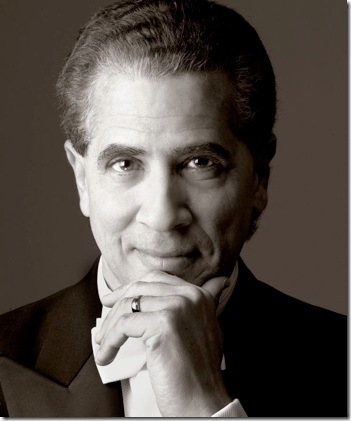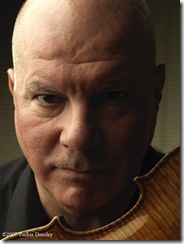For several years now, the student orchestra at Lynn University has offered high-quality symphonic concerts for area patrons in the know, who show up reliably in substantial numbers.
And they are rewarded for their loyalty. Each year, the Lynn Philharmonia gets a little better, as the conservatory programs at the Boca Raton college deepen, and a larger number of promising young musicians are recruited to South Florida.
The Philharmonia as it is this academic year gave tantalizing evidence of its abilities in its first appearance early this season in a concert of music by composer Donald Waxman, a Boca Raton resident. Sunday afternoon at the Wold Performing Arts Center, these musicians demonstrated that they constitute an orchestra of considerable skill, with a forceful, punchy sound, and ―at last ― real depth in its brass section, which for a long time has been the weakest component of the Philharmonia’s various iterations.
But not these days; the orchestra’s performance of the Shostakovich Fifth Symphony (in D minor, Op. 47) was impressive and satisfying in every important way, technically accurate and emotionally persuasive, and an achievement that bodes well for the concerts to come.
Leading the orchestra for this weekend’s performances was guest conductor Guillermo Figueroa, former director of the New Mexico Symphony and founding concertmaster of the Orpheus Chamber Orchestra. He was in firm control of his orchestra Sunday, and his charges made sure to bring him out for a curtain call at the end of the concert.
Soloing with the group was the eminent American violinist Elmar Oliveira, a Lynn artist-in-residence whose career was fired by his gold medal win at the Tchaikovsky International Competition in 1978 (still the only American to have done that). In small halls and large, he is a violinist with a huge sound, a player who commands the stage, not least through his physicality. A powerfully built man whose bald head stands out strikingly above his severe black concert wear, he looks ready and able to tackle anything the Olympians of music can send his way.
Oliveira played the Violin Concerto No. 3 (in B minor, Op. 61) of Camille Saint-Saëns on the Philharmonia’s all-French first half. This is the only one of the composer’s three violin concertos to be regularly played, and it hangs on because of its sparkling display and tunefulness, even though it lacks the depth of the great repertory concertos.
This concerto was written for the Spanish virtuoso Pablo de Sarasate, and Oliveira is clearly comfortable with the kind of showmanship that legacy and this music demands. He dominated the proceedings, as he should, with vigor and panache in the outer movements, and a tense, light singing tone in the pretty siciliano that makes up the second movement.
Oliveira’s mastery of the music was evident, and there were nice touches such as the way he played the horn-call fifth in the finale’s opening bars, summoning the orchestra to follow him, and the points-of-light approach he brought to the high harmonics of the slow movement’s closing pages. But while his technique is formidable (and you can’t play this piece without that kind of equipment), there was a moment of two in the cadenza-style runs ― particularly one diminished-chord rocket ― where the notes weren’t spotless.
While that may seem overly nitpicky, in music as clear and transparent as this, where the soloist’s primary job is to loosen closed audience jaws and make them drop, everything needs to be as perfect as he can make it. That’s part of the music’s insouciance and showy charm, as well as its peril. This was an excellent, entertaining performance, but not a transcendent one.
The concert opened with the Le Corsaire overture of Berlioz, a composer whose work is a specialty of Figueroa’s. The first few moments of the piece were something of a mess, with the tricky interplay of winds and strings not nearly precise, perhaps because the tempo Figueroa took was a little bit too fast.
But the rest of the overture was quite good, with the violins in particular demonstrating admirable ensemble. This reading of the work had snap, fire and abundant youthful energy; if the sound did not have the plushness you find in established major orchestras, it made up for it with its vividness and color.
The second half was devoted to the Shostakovich, which bore the marks of careful rehearsal, and in a way that suggested conductor and students were going on an exciting journey together. Figueroa led the work with a long narrative arc in mind; the individual movements sounded all of a piece, not disparate and random.
This is a symphony with numerous solo passages for various instruments, and there was fine individual playing from flute, oboe, clarinet, harp, violin, and especially the horn, which has a murderously difficult solo part toward the end of the first movement. The hornist cracked on the highest note, but the rest of the playing was strong and effective.
As I mentioned at the outset, the brass section was gratifyingly good throughout the work, which made a huge difference in making the performance compelling. Violins, violas and cellos brought off the opening of the third movement Largo with beauty and pathos, and the winds in the very Mahlerian Scherzo played with bite and wit.
The major-key coda in the finale was big and powerful, but perhaps could have been more so; a little bit slower, a tiny bit louder, and it would have had some more impact. As it was, the ending was somewhat too controlled, and could have used some broader gestures to make maximum contrast with what had gone before.
But in general, this was a fine reading of a great 20th-century symphony, and to know that there is a group of young musicians here who can fulfill the obligations of this kind of artwork so convincingly is good news indeed.
The Lynn Philharmonia performs its third program of the season Feb. 23 and 24 at the Wold Performing Arts Center. Dean Jon Robertson will conduct the group in the Prelude to the Afternoon of a Faun of Debussy, Tchaikovsky’s Romeo and Juliet overture, and the Second Symphony (in D, Op. 73) of Brahms. Concerts are set for 7:30 p.m. Saturday and 4 p.m. Sunday. Call 237-9000 or visit www.lynn.edu/tickets.

